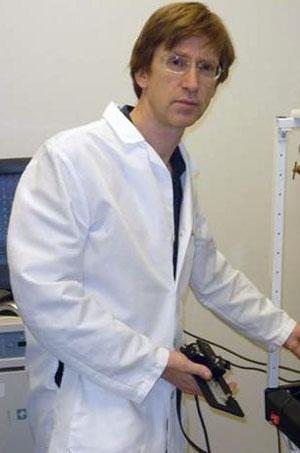
By Anne Marie Amacher
The largest depository of adult stem cells in the world is looking forward to expanding its research in the future, but more scientists and funding are needed.
Cellular Engineering Technologies (CET) and its research partner, John Paul II Stem Cell Research Institute (JP2SRI) of Iowa City, are poised “to become a leader in regenerative medicine,” says Kim Lehman, marketing and development director for the institute.
JP2SRI/CET has in its depository iPS (induced pluripotent stem cells), and adult stem cells of two types of cord blood HSC (hematopoietic adult stem cell), four MPSC (multipotent adult stem cells), AESC (amniotic epithelial adult stem cells), and cord blood MPSC.
Other research institute depositories around the U.S. include Johns Hopkins, MIT/Harvard, UCSF-Gladstone, University of Wisconsin, Duke, Wake Forest, University of Minnesota, University of Pittsburg, Rutgers-Keck Institute, UCSD and Stanford.
The Iowa City groups do not do embryonic stem cell research – which goes against the teachings of the Catholic Church, Lehman said.
The newest venture JP2SRI anticipates, when funding is available, is cord blood research. That involves deriving adult stem cells from umbilical cords after infants are born. Families will be able to contact the center, receive a kit and give it to the doctor or nurse to collect the blood after the baby is born. The collection will then be shipped to the center.
But, “we do not have the staff to accommodate this project yet,” Lehman said.
“We are in the early stages of planning, but need the funding to hire up to 30 scientists to do our research,” she said. Lehman expects a high interest in cord blood donations especially since no costs are involved in making a donation.
JP2SRI wants to do more than advocacy, which is primarily what it is doing now. “We want to be a research arm for the pro-life movement.”
Lehman said many people, including Catholics, do not realize that cord blood is not embryonic stem cells. The blood from the umbilical cord and/or placenta is considered adult stem cells — not embryonic — Lehman said. Embryonic stem cells involve the destruction of human embryos.
“We do not conduct human embryonic stem cell research and do not perform therapeutic cloning or somatic cell nuclear transfer.”
HSC cells can be obtained from umbilical cord blood, according to an informational brochure by JP2SRI on donating cord blood for ethical stem cell research.
“HSC represents potential stem cell sources for bone marrow transplant candidates,” Lehman said.
In December 2008, the institute helped Peyton Hadley, 11, and his sister Kayla, 8, who have both been diagnosed with Niemann-Pick Type C, a rare orphan disease. This genetic disorder also is called children’s Alzheimer’s and claims lives by age 18.
Lehman said the institute took fat tissue from the children to create stem cells to be tested for FDA-approved drugs. These drugs are a variety already in use for other conditions. The testing is being done by the National Institutes of Health (NIH).
Millions of stem cells were produced, Lehman noted, and in March 2010, positive results for potential treatments were found.
JP2SRI was asked by the NIH to produce 1 billion more stem cells to continue its research. “This is a huge breakthrough.”
If a treatment is found through these tests, this could lead to treatment for adult Alzheimer’s, Lehman said.
Dr. Alan Moy, founder of JP2SRI and Cellular Engineering Technologies, said in a release, “We have a process now where we can start looking at finding treatments for orphan diseases (rare diseases that do not represent a sufficient number of people to warrant research).”
Through research therapy, Moy and JP2SRI believe that by using advanced stem cell technologies, treatments can be found for people with cancer, neuromuscular disorders and orphan diseases and the technologies could provide an alternative to organ donations and save in health care costs.
For more information on the John Paul II Stem Cell Research Institute, visit www.JP2sri.org or contact Lehman at (515) 202-2517 or klehmanjp2@aol.com
Donations can be sent to the institute at 540 E. Jefferson St., Suite 305, Iowa City, IA 52245.








